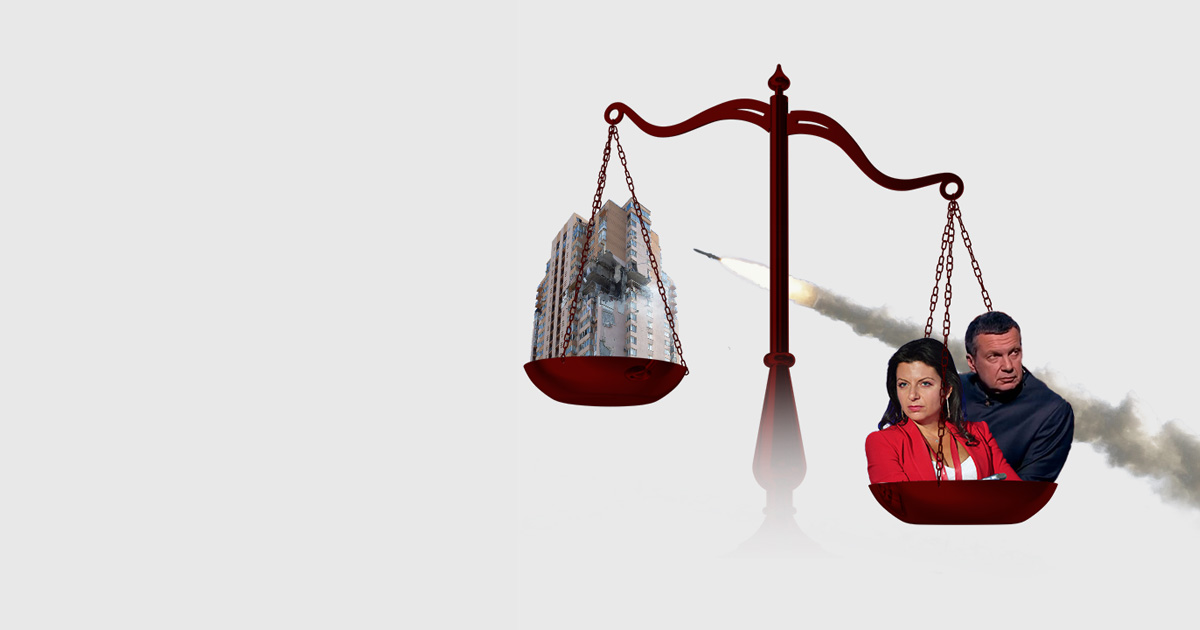Why is it wrong to call Russians for balance?

A golden rule to journalism is to be objective in what you deliver to your audience. The media have a pivotal role as an active promoter of human rights and democratisation, as well as a facilitator of conflict reduction and resolution. Here we face a need to balance views to prevent biases. But what if one side of a conflict spreads disinformation and propaganda?
Journalism standards
In conflict situations, the media is critical in providing the public with full details and reliable, non-partisan information. Approaches and methods of conflict-sensitive journalism allow the media to provide more comprehensive, neutral, and accurate information on conflicts. With the full-scale war, many media have struggled to counter Russian propaganda and disseminate truthful information. Local journalists invited Russians, who passed on the Kremlin's stance.
Here we face the problem. Speaking of the rules of journalism, it is believed that the media must balance information. So, inviting Russians is necessary for the floor to be given to all the parties involved. But the truth is that most of them are transmitting information that, at its very core, is propaganda. So, trying to avoid bias, we spread false statements created by the Russian government.
A good example is when Russian propagandists, in their defence, start talking about strategic interests in the war. It always sounds like Russia is simply protecting itself, its area of influence, and its strategic interests, and it is NATO to blame for provoking Russia. Such ideas are just the embodiment of colonialism and imperialism, which is highly appreciated in Russian society.
So-called opposition and their perspective
One might wonder why not invite someone from the opposition in Russia. Most Russian so-called “liberals” initially are still admiring some imperialistic ideals. For instance, one of the most prominent Russian oppositionists, Alexei Navalny, claimed that the Crimea peninsula was part of Russia.
Another reveal of the true intentions of the so-called Russian opposition is their efforts to avoid responsibility. Let us look at the Europeans’ decision to stop issuing tourist visas to citizens of Russia. Many oppositionists run away from responsibility as if it is not their country that commits genocide in Ukraine, as if it is not their army that kills, rapes, and robs. The central illusion they are trying to create is that Putin is personally waging war against Ukraine and that only he is to blame for it. But surveys show a high support rate for the war among the Russian population. Russian people hold the responsibility while being quiet or favouring their government position.
In search of influence to destabilise from inside
Russians would use the opportunities to talk or write publicly to spread their narratives. Recently, a new approach used by pro-Russian journalists influence has emerged. Russia has a multi-vector and multifunctional network that combines various channels of communication. The aim of the Russian side in an informational sphere is to take possession of the agenda. Contemporary Russian discourse is characterised by sceptical and apocalyptic rhetoric. Sceptical rhetoric instils real doubt in the audience, the opinion that "everyone is lying", which nullifies the criteria for moral choice. This perception causes a large-scale demand for alternative views in the public space, including in the media. And it is precisely this space that Russia fills.
There are still some Russian-controlled media, for example, the British paper The Independent, which was sold to Russian oligarch former KGB Officer Alexander Lebedev. Furthermore, Russian-controlled media like RT and Sputnik managed to flout European sanctions by promoting their newly minted replica websites via their official social media accounts. Researchers proved at least 12 sites, mainly in either German or Spanish, that were exact copies of either RT Deutsch or RT en Español.
Russians do not need to control media in the EU since some European media and newspapers spread Russian narratives. One such is The Maghreb and Orient Courier, which writes mainly about the Arab world and spreads disinformation in Arabic, French, and English. The chief editor, Pierre Piccinin, was also accused of spreading propaganda about Syria in 2012. Similar media disseminate Russian ideas in Germany and Italy, including Uncut and Contro.
Instead of representing another side of the conflict, they are more likely to focus on local problems, actual to each country, to undermine the support of Ukraine.
Additionally, there is an example in Germany when a member of the ruling Social Democratic Party, Manuela Schwesig, promoted Russian interests at Gazprom’s expense under environmental protection. The politician is the founder of an environmental fund, which was secretly created to promote the interests of the Kremlin and evade the Nord Stream-2 gas pipeline from US criticism and sanctions.
Terrorists, as the other party
On October 13, the Parliamentary Assembly of the Council of Europe passed a resolution declaring Russia a "terrorist" regime. The text was adopted with 99 votes in favour.
“In the light of the gravity of the international situation, the Assembly calls on international organisations to consider appropriate measures to avoid that the Russian regime uses staff of Russian nationality as a vehicle to support the Russian Federation's aggression against Ukraine, spread false information and Russian narratives about it and to influence these organisations' political decisions”, the resolution states.
Additionally, the governments of Poland and Latvia designated Russia as a “state sponsor of terrorism”.
Since Russians act like terrorists, violating international law and targeting civilians, inviting them to comment is the same as giving the floor to Al-Qaeda members.
.


